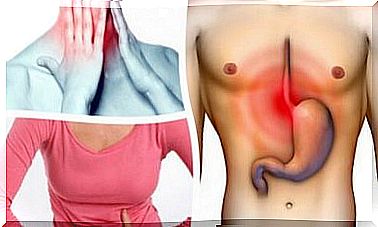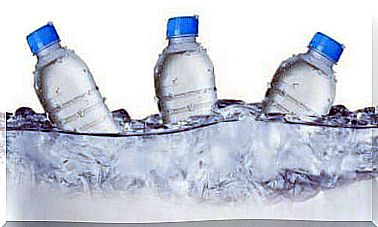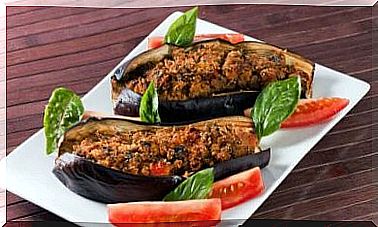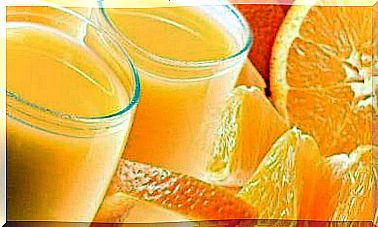B-complex Vitamins: Foods Containing Them
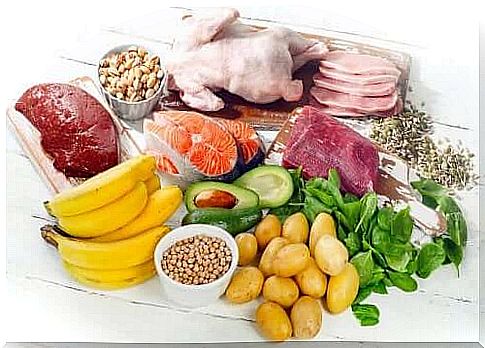
Much is said about the importance of B vitamins for the body. However, do you really know what different vitamins are included in the B complex and what foods provide them?
So today we’ll show you what you need to know about it: both the vitamins that make up this group and the foods that contain them.
Complex B vitamins
Vitamins are vitally important micronutrients for the human body, as they have certain specific properties that allow the organs to correctly perform each of their functions.
However, although there are many types of vitamins, today we will focus on the B complex, which:
- They help in the proper functioning of cells in the body’s systems and organs.
- Allow the body to produce energy.
- They help to assimilate the energy provided by carbohydrates, proteins and ingested fats.
- They help transport essential nutrients.
When we talk about B-complex, we are referring to a set of vitamins that work collectively and that include:
- Thiamine (B1)
- Riboflavin (B2)
- Niacin (B30
- Pantothenic acid (B5)
- Pyridoxine (B6)
- Biotin (B7, also known as vitamin H)
- Folic acid (B9)
- Cobalamin (B12)
How to get B-complex vitamins?
The different vitamins we mentioned earlier can be found in different foods. That is, if you maintain a balanced diet, you will be ingesting B-complex vitamins in an abundant way.
However, there are also vitamin supplements that can help in times of greater deficiency. Sometimes doctors recommend them when they detect an insufficiency or to improve organ functions.
Next, we’ll talk about each of these vitamins and the products that contain them.
Thiamine or B1
Thiamine is the vitamin that helps regulate appetite as well as supports metabolic functions.
In addition, you can find this vitamin in foods such as pork, ham, fortified cereals, green leafy vegetables, lentils, green peas, nuts and wheat germ products.
Riboflavin or B2
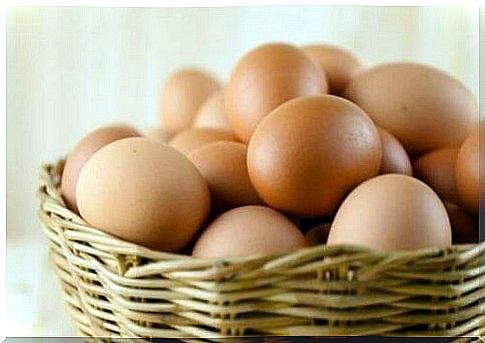
Riboflavin helps to keep the skin in a healthy state. Furthermore, the food products from which it can be obtained are mainly dairy products, such as milk, yogurt and cheese.
However, dairy products are not the only sources of riboflavin. It is also found in some vegetable ingredients such as spinach, asparagus and, in general, in dark leafy vegetables. Furthermore, you will also ingest this element when consuming fortified chicken, fish, eggs and cereals.
Niacin or B3
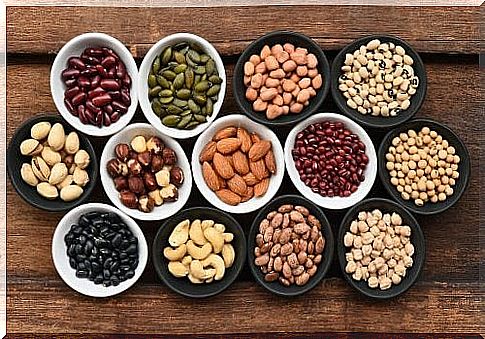
Niacin is a group B vitamin that benefits both the proper functioning of the nervous system and the cardiovascular system. Furthermore, it provides more energy.
The best sources of niacin are chicken, salmon and tuna. Also, vegetables, fortified cereals, peanuts and pasta are excellent sources of this vitamin.
Pantothenic acid or B5
Pantothenic acid is a vitamin of great importance for the development and functioning of enzymes.
In summary, the richest sources are avocados and yogurt, as well as lentils, peas and other vegetables. It can also be obtained in small but sufficient quantities by consuming broccoli, mushrooms and sweet potatoes.
Pyridoxine or B6
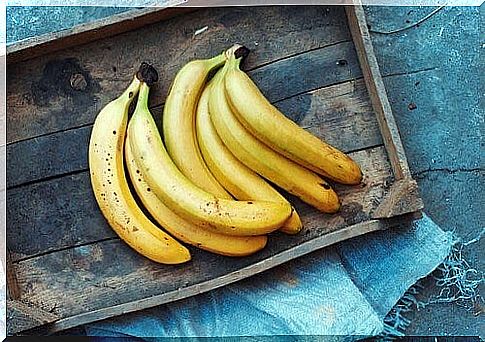
Vitamin B6’s importance stems from the fact that it helps produce red blood cells. Therefore, it favors the good health of the circulatory system.
The best sources of this vitamin are poultry and shellfish. Furthermore, it can be obtained from green leafy vegetables, bananas, potatoes and fortified cereals.
Biotin or B7

Biotin is recognized for its benefits on the skin and, especially, for hair health. This vitamin helps keep your skin and hair well-groomed and healthy. It also participates in helping enzymes obtain energy from the nutrients in the diet.
It is found mainly in egg yolks and liver. It is also present in pork, salmon and avocado. Likewise, other food products provide small amounts of biotin. This is the case for the vast majority of vegetables and fruits, as well as cheese and grains.
Folic acid or B9
The well-known folic acid is vital for the health of red blood cells, as well as for improving the functions of the nervous system. Furthermore, it participates in embryonic maturation, which is why it is highly recommended for pregnant women.
This important vitamin is found primarily in green leafy vegetables. Folic acid can also be consumed in products such as fortified pasta and rice.
B12 vitamin
Like vitamin B6, B12 helps with the formation of red blood cells. Furthermore, it improves the functioning of the nervous system and embryonic maturation.
This vitamin is found exclusively in foods of animal origin, such as beef and pork, chicken, turkey, fish and shellfish.
However, many non-animal products are fortified with this nutrient. Fortified cereals, as well as soy products, contain some amounts of vitamin B12.
However, people on a vegan diet are most at risk, with a lower proportion of vitamin B12 in the diet. In this case, it would be interesting to supplement with supplements.
Balanced diet
As you can see, many foods contain several B-complex vitamins. Also, you will have noticed that there is a wide range of products that have the necessary vitamins.
